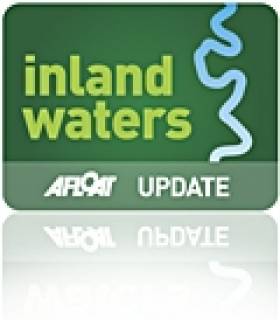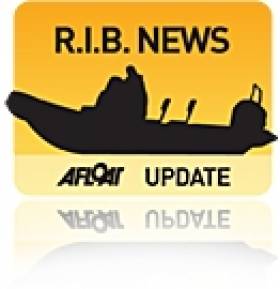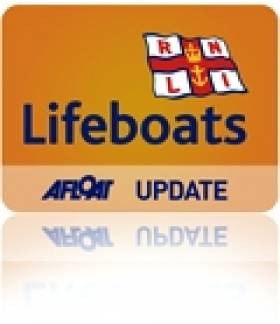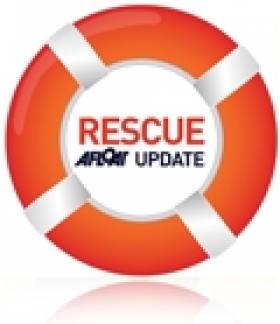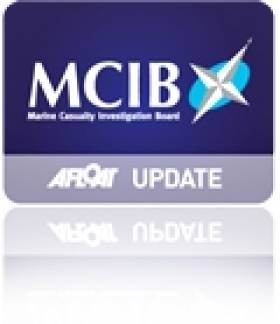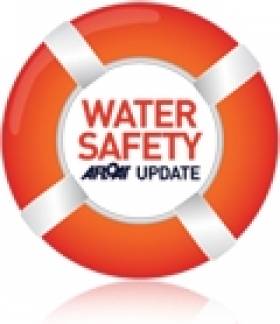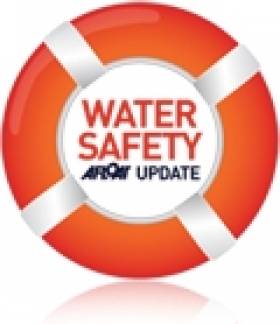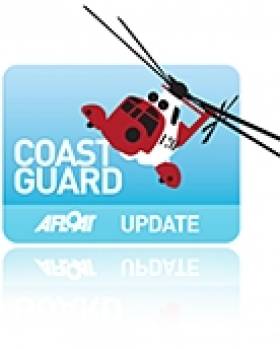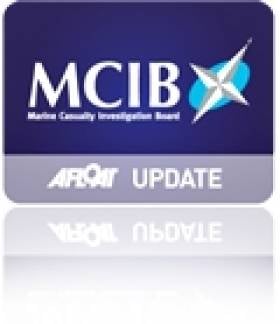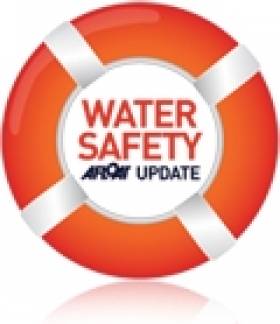Displaying items by tag: water safety
#InlandWaterways - Waterways Ireland is advising masters and users of the Shannon Navigation that a triathlon event will take place on Saturday 8 June in the environs of Portrunny Harbour.
The swimming course will be laid out adjacent to the moorings in the harbour, and will be active from 11.30am till 1pm on the day.
Swimmers on the course will be accompanied by a safety boat and kayaks.
Masters are requested to give the swimmers a wide berth and to navigate at slow speed and with a low wash when passing the area, and to heed any instructions or advice given by the event marshals.
Police Focus On Kill Cord In Cornwall RIB Tragedy
#KillCord - Police in Cornwall investigating the deaths of a father and daughter in a speedboat accident off Padstow at the weekend are focusing on the boat's 'kill cord', according to BBC News.
BSkyB executive Nick Milligan and his eight-year-old daughter were struck by the family's runaway Cobra RIB after losing control of the vessel and being thrown overboard.
Four other family members in the water struck by the 8m-long boat were hospitalised, with the BBC reporting that Milligan's wife Victoria and four-year-old son Kit suffered "serious, potentially life-changing injuries".
Witnesses describe the speedboat circling to hit the family after turning sharply and throwing them into the water, then continuing to run around in circles before it was stopped by local waterskiing instructor Charlie Toogood who jumped on board.
Investigators are looking closely at the kill cord or safety lanyard, a device attached to a boat's throttle that should automatically cut engine power if the boat's pilot goes overboard.
A malfunctioning kill cord was identified in an incident in Cork Harbour last summer in which a RIB pilot lost an arm after he was thrown overboard and subsequently struck by his runaway vessel, as previously reported on Afloat.ie.
Months before, an angler died and another was treated for hypothermia after being thrown overboard and separated from their vessel, a result of neither man using the kill cord on their boat's engine.
#RNLI - Portaferry RNLI is looking for new volunteer crew members to join its search and rescue service in Co Down.
The station currently has 17 lifeboat and two shore crew to cover its inshore service on Strangford Lough but is now calling on new volunteers to come forward and find out how they can get involved in helping the charity continue to save lives at sea.
To that end, the station will be hosting two open days early next month for all interested candidates to learn more.
"We are looking for anyone aged 17 years and over who is willing to offer some of their free time to join what I believe to be, one of the most exhilarating and rewarding voluntary services that is out there," said lifeboat operations manager Brian Bailie.
"Every volunteer receives first class training from the RNLI and learns new skills which can benefit them in many walks of life. Lifeboat crew members need to have a reasonable level of fitness, have good eyesight and not be colour-blind."
He added: "Anyone who would like to volunteer but feels they would not meet the requirements for lifeboat crew should in no way be put off, as shore crew also play an essential role in the launch and recovery of the lifeboat when it goes on service."
For anyone who feels they have the time and commitment to volunteer for the charity which is on call 24 hours a day, 365 days a year, is asked to email Brian at [email protected].
Alternatively, prospective volunteers can come along to the station’s open days from 7-9pm next Tuesday 7 May or from 2-4pm next Saturday 11 May.
Elsewhere in Northern Ireland, primary school children will have the opportunity to hit the surf with RNLI lifeguards over the next month.
The charity’s ‘Hit the Surf’ programme runs from 7 May to 7 June on the East Strand Beach in Portrush.
Aimed at primary five to seven pupils aged eight to 11, the programme - which is expanding to accommodate more schools this year - gives children a unique opportunity to gain practical lessons in lifesaving and beach safety. All equipment is provided free of charge.
Each session lasts two-and-a half-hours and includes a theory lesson on staying safe at the beach, the role of beach lifeguards and the RNLI, and detailed information on flags and rip currents.
There are practical lessons in lifesaving and surf based skills, while lifeguards aim to build pupils confidence in the sea. Children also learn about the local hazards and the beach environment.
Sessions are still available for schools who want to book pupils in. For more information contact Jessica on 0777 441 4208 or email [email protected]
Last year RNLI lifeguards located on beaches in Co Down and along the Causeway Coast responded to 158 incidents and assisted 176 people who found themselves in difficulty.
Irish Lifesaver Appointed Chief Referee for Euro Champs
#watersafety – An Irishman has been appointed Chief Referee for the European lifesaving Championships 2013.
Irish competitors and officials are highly respected at the European Surf Lifesaving Championships, an event that tests the endurance of the fittest Lifeguards in Europe.
Daniel Wrafter, originally from Grantstown Park in Waterford and now living in Kilmainham, Dublin 8 is an experienced Internationally qualified A-Level referee.
A long time competitor himself at national and international level, Daniel now fulfills the position as Chief Referee for the Ocean Events and Deputy Referee for the Pool Events at the European Lifesaving Championships on 16th to 18th August 2013 in The Hague, Netherlands.
The Council of Irish Water Safety fully supports Daniel's nomination which it regards as a reflection on the high standards in Ireland both in terms of training competitors and officials.
IWS extends congratulations to Daniel and its appreciation to the International Lifesaving Federation of Europe's College of Referees.
#MCIB - Investigators have reiterated the importance of water safety measures such as wearing a lifejacket and having a means of alert when on or near the water in the report into the death of a man in Dundalk Harbour in February last year.
As previously reported on Afloat.ie, the man was understood to have taken a small punt from the mudflats at Soldiers Point to reach a colleague requiring his aid on another boat on the afternoon of Saturday 12 February 2012, but went missing after he capsized near Dundalk Lighthouse.
The official report into the indecent by the Marine Casualty Investigation Board (MCIB) names the man as Stephen Fergus, who was making his way to assist his friend Pat O'Brien, whose boat was suffering engine trouble and was anchored on the north side of the estuary at Dundalk Harbour.
Fergus was reported missing after O'Brien became concerned as to his whereabouts. After an extensive search of the estuary by the emergency services, Fergus' body and the submerged punt were found later that evening by the Drogheda unit of the Irish Coast Guard.
The subsequent post-mortem recorded Fergus' death as by drowning.
With no witnesses to the incident that brought about his death, it is assumed that Fergus was in the process of either getting into the punt or transferring from the punt to his own boat when the tragedy occurred.
It was noted that the canvas cover on his boat has not been disturbed, indicating that he did not gain access to the vessel before the incident.
The report's analysis concludes that the strong tidal current at the time would have made it difficult for Fergus to manoeuvre the punt to transfer to his boat single-handedly.
In addition, the condition of the mudflats where the punt was tied off were found to be changeable over time, with the mud in parts "arduous to walk on".
But the key finding of the investigation was that Fergus was neither wearing a lifejacket nor had any means of communication on his person at the time of the incident.
Two lifejackets were found in his car, and it was noted that he had left his mobile phone at home, presumably in the hurry to assist his friend.
The MCIB recommended that all owners and operators of recreational craft should be aware and follow the Code of Practice for the Safe Operation of Recreational Craft.
The full report is available to download as a PDF below.
RNLI Lifeguards Providing Easter Beach Cover In Northern Ireland
#WaterSafety - RNLI lifeguards will provide Easter cover for the first time on three of the most popular family beaches in Northern Ireland.
For the second year running, lifeguards will be patrolling Tyrella Beach in Co Down, and for the third year will be ready to offer safety advice and assistance on Benone Strand on the north coast.
In addition this Easter, lifeguards will also be patrolling Portstewart Strand, Portrush East Strand and Whiterocks beach, all of which are located along the Causeway Coast.
The cover commences on Good Friday 29 March and will run throughout Easter week until Sunday 7 April.
Despite the unseasonal weather, the charity’s highly trained lifeguards will be ready to assist visitors who brave the elements and take a trip to the seaside over the Easter break.
The lifeguards will operate on Benone, Portstewart, East Strand and Whiterocks from 11am to 7pm, and from 10am to 6pm on Tyrella Beach.
RNLI regional lifeguard manager Mike Grocott said: "Our highly trained lifeguards spot potential dangers before they develop, and are on hand to give appropriate safety advice and respond immediately if anyone gets into difficulty.
"Because our lifeguards work closely alongside our volunteer lifeboat crews, it means the RNLI offers beachgoers and water-users a seamless rescue service from beach to open sea."
The RNLI started providing lifeguard cover on Northern Ireland beaches in 2011, working with Coleraine Borough Council, Limavady Borough Council and the National Trust - and going into its third season now has lifeguards on 10 beaches.
Last year, lifeguards in the areas of Newry and Mourne District Council, Down District Council and the Causeway Coast together responded to 158 incidents and assisted 176 people.
Speaking ahead of the Easter holidays, RNLI lifeguard supervisor Tim Doran encouraged anyone planning a trip to the beach to keep safe.
"Always swim at a lifeguarded beach. Never use inflatables in strong winds or rough seas and check tide times before you go," he said. "If you get into trouble, stick your hand in the air and shout for help and if you see someone else in trouble, tell a lifeguard. If you can’t see a lifeguard, call 999 or 112 and ask for the coastguard."
The RNLI is also encouraging anyone planning a trip to the seaside this year to download its ‘Beach Finder’ mobile app.
The handy app makes it easy to find the nearest lifeguarded beach, and gives users a wealth of beach safety information at their fingertips.
Real-time weather information and a five-day forecast for each location is also included with the app – ideal for anyone wondering whether they’ll need to pack their suncream or waterproofs!
The app is available to download free of charge on both Android and iOS devices from www.rnli.org/beach.
New Sea Safety Training Guide for Ireland's Fishermen
#SafetyAtSea - Bord Iascaigh Mhara (BIM) highlighted the importance of safety at sea in the Irish fishing industry at this year’s Irish Skipper Expo in Galway last weekend.
Ireland's sea fisheries board also marked the occasion with the launch of a new training guide on personal survival techniques, covering key topics such as personal flotation devices, abandoning ship, helicopter rescue and hypothermia.
The guide, approved by the National Adult Literacy Association (NALA), was developed by BIM in consultation with Dr Jason van der Velde of Medico Cork at Cork University Hospital, the Department of Transport and the Irish Coast Guard.
Over the last five years, 19 deaths at sea related to the commercial fishing and aquaculture sector have been recorded. Statistics for 2012 record seven deaths, and an increase year on year for the previous four years. And with two deaths already recorded this year, safety is a serious issue that must be addressed in the wider seafood sector.
BIM chief executive Jason Whooley emphasised the importance of completing life saving safety training. "Fishing is a dangerous occupation and the sector has already suffered from too many tragic accidents at sea in recent years," he said.
"With new developments in safety on board and new technology coming on stream, we have more tools at our disposal to increase survival rates from accidents at sea but in order for these measures to be effective, all crew require the necessary training.
"It is therefore imperative that fishermen and aquaculture personnel, who have not already done so, complete their safety training to help prevent any further lives lost at sea."
BIM runs a variety of training courses for industry, including the mandatory Basic Safety Course, in its dedicated training colleges under the National Fisheries College Ireland (NFCI) umbrella in Greencastle, Co Donegal and Castletownbere, Co Cork, as well as on board its coastal training units that bring training directly to ports and coastal locations around Ireland.
UK Coastguard Agency Head Meets Fishermen's Mission in NI
#Coastguard - The chief executive of the UK's Maritime and Coastguard Agency (MCA) was in Northern Ireland yesterday (4 March) to discuss future collaboration with the Royal National Mission to Deep Sea Fishermen.
As Fishupdate.com reports, the charity - also known as the Fishermen's Mission - provides emergency support to fishermen and their families in times of need.
Sir Alan Massey of the MCA was in Kilkeel, Co Down to meet with the charity's CEO David Dickens to find out how best to work together on their common ground of safety at sea.
"We want to encourage a culture where it becomes normal practice for all fishermen to wear a lifejacket or personal flotation device (PFD) when out at sea," said Massey.
Dickens added that the Fishermen's Mission is "keen to engage with all agencies and organisations that seek to reduce the number and severity of incidents in fishing".
Man Lost Arm After Going Overboard from RIB In Cork Harbour
#MCIB - A man who lost his arm when he fell overboard from his boat in Cork Harbour last summer could have avoided the accident if he had followed essential safety precautions, according to the official report into the incident. The full report is available to download below as a PDF document.
Owen Corkery of Carrigaline was the subject of a 'miracle rescue' on 9 June 2012 when he was thrown overboard from his RIB, which subsequently struck him several times after he entered the water near Haulbowline Island, causing serious injuries to his head, back and left arm.
As previously reported on Afloat.ie, the RNLI said Corkery was "incredibly lucky to have been spotted from the shore" by a man now known to be Paul Bryans, who had been looking through a telescope at Fort Camden in Crosshaven approximately a mile away from the site of the incident.
Bryans and colleague Dick Gibson immediately raised the alarm with the emergency services and Crosshaven RNLI respectively, and rescue crews were dispatched within minutes.
While the lifeboat volunteers took control of the wayward RIB, Corkery was quickly retrieved from the water by the crew of the Cork Harbour Pilot boat Sonia. They found him incoherent and bleeding heavily, and also noted that while he was wearing a working personal flotation device (PFD), he was not wearing warm clothes or shoes.
Corkery was transferred via ambulance to Cork University Hospital, where his left arm was later amputated just above the elbow due to the severity of his injuries.
According to the official report into the incident by the Marine Casualty Investigation Board (MCIB), the RIB was found to be undamaged but had no CE or other approval mark.
The kill cord on the boat's motor was also found to be malfunctioning, as the engine could be started whether or not it was attached, and did not shut off when removed.
The report states that Corkery - an experienced powerboat user who had not completed any recognised handling course - has since explained he was aware of the kill cord malfunction but continued to use the vessel.
He confirmed in the same interview with investigators that he was standing beside the helm of the RIB at the time of the incident, a position that "would have made him considerably more likely to be thrown from the vessel".
Investigators also found it likely that Corkery's lack of shoes would also have reduced his grip while standing on the floor of the RIB.
In its conclusions, the MCIB report - which is available to download below - emphasises that the kill cord is an "essential part of safety equipment for all open motorboats" that should always be used and checked regularly, and that the helm of any high-speed watercraft should always remain seated, even at low speeds.
It also recommends that all pleasure craft owners should complete a recognised powerboat handling course.
Crushing Incidents Restate Need for Safety Around Moored Vessels
#Safety - Two recent crushing accidents in the UK and Australia have restated the need for vigilance at the waterside even when boats are moored.
Yachting & Boating World reported last month on a port worker at Denton Wharf in Gravesend who was rendered critically ill after being crushed against a pier by a 40-tonne barge.
Thirty-six-year-old Michael Russell, a 20-year veteran of the wharf, was mooring the boat when the accident occurred. His wife Natalie said he "was in the wrong place at the wrong time."
Elsewhere, Australia's 9 News reports that the body of a man in his late 20s or early 30s was recovered from the water in Sydney Harbour after falling overboard from a luxury yacht and being crushed against a mooring pillar.
Both incidents should serve as a reminder all those on or near boats moored at port or dockside to maintain the same safety standards they would while on the water.


























